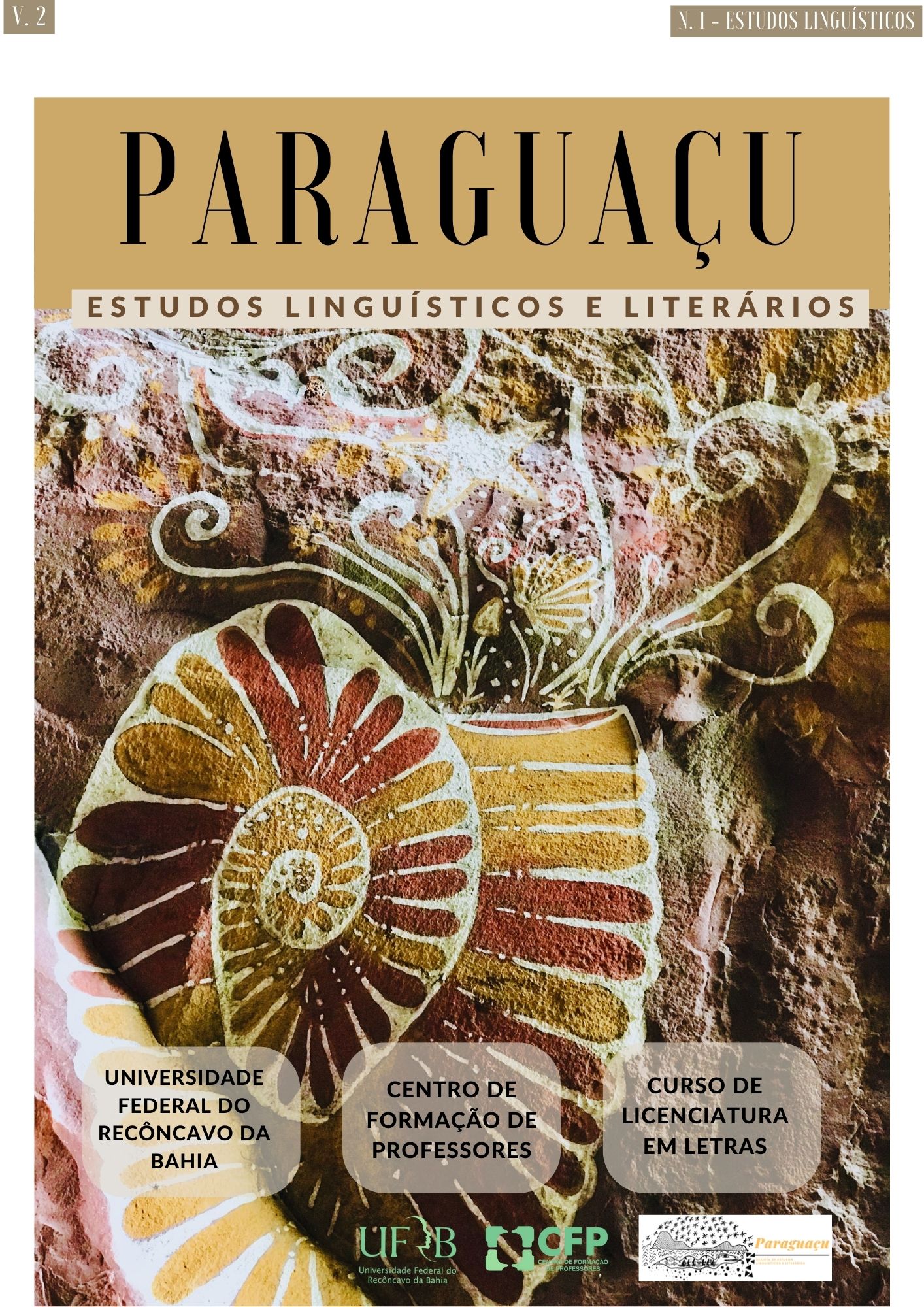Study of the variation teu/seu: investigating possessive pronouns in comedy sketches
investigando os possessivos em esquetes humorísticos
Abstract
In this article, we intend to investigate the variation between the second person singular possessive pronouns seu and teu, having as the main focus the carioca variety. Ee will base ourselves on the theoretical assumptions of the Variationist Sociolinguistics (WEINREICH; LABOV; HERZOG, 1968; LABOV, 1994). The corpus of this work was structured from the analysis of a set of 362 humorous sketches by the collective Porta dos Fundos, where we found 773 occurrences of these possessive forms. After collecting these data, they were submitted to variable rule analysis, an analysis that pointed us in some directions: there is a close relationship between the form that was used in the subject position and the use of the possessive pronouns; the preference of the use of the pronoun teu by the speakers of Rio de Janeiro; an inclination for the use of the possessive teu in contexts in which there was more intimacy and closeness between the interlocutors; the influence of sex on the use of the possessives, with a higher preference for the use of the possessive teu by the male actors and seu by the female actresses; and the relationship between this phenomenon and the semantic feature of animacy, because teu was more productive in contexts in which the possessed name had the semantic feature [+ animated], and seu when it accompanied a name possessed with the feature [+ inanimate].
Downloads
References
ARDUIN, Joana. A variação dos pronomes possessivos de segunda pessoa do singular teu/seu na região sul do Brasil. Florianópolis, 2005.
KATO, Mary A. A complementaridade dos possessivos e das construções genitivas no português coloquial: réplica a Perini. Pontifícia Universidade Católica de São Paulo. D.E.L.T.A., Vol. 1, n. 1 e 2, 1985 (107-120)
LABOV, William. Principles of linguistic change: internal factors. Oxford, Cambridge: Blackwell, 1994
LABOV, W. Principles of linguistic change: social factors. Cambridge: Blackwell Publishers, 2001.
LABOV, W. Padrões Sociolinguísticos. São Paulo: Parábola Editorial. 2008 [1972].
LOPES et al, Célia Regina. A reorganização do sistema pronominal de 2ª pessoa na história do português brasileiro: outras relações gramaticais. Capítulo 2 da coleção História do Português Brasileiro vol. 4. Mudança sintática das classes de palavra: perspectiva funcionalista. Editora Contexto; 1ª edição, 2018.
MACHADO, Ana Carolina Morito. As formas de tratamento nos teatros brasileiro e português dos séculos XIX e XX. Tese de Doutorado em Língua Portuguesa. Rio de Janeiro: Faculdade de Letras/ UFRJ. 2011.
MOLLICA, Maria Cecilia. BRAGA, Maria Luiza. Introdução à sociolinguística: o tratamento da variação. 4ª ed., 6ª reimpressão. – São Paulo: Contexto, 2020.
PAIVA, Maria da Conceição. Capítulo 4 - Introdução à sociolinguística: o tratamento da variação. Maria Cecilia Mollica e Maria Luiza Braga. 4ª ed., 6ª reimpressão. – São Paulo: Contexto, 2020.
PEREIRA, Rachel de Oliveira. Pronomes possessivos de segunda pessoa: a variação teu/seu em uma perspectiva histórica. Tese de Doutorado em Língua Portuguesa. Rio de Janeiro: Faculdade de Letras/UFRJ. 2016.
SCHERRE, Marta Pereira. YACOVENCO, Lilian Coutinho. A variação linguística e o papel dos fatores sociais: o gênero do falante em foco. Revista da ABRALIN, v. Eletrônico, n. Especial, p. 121-146. 1ª parte 2011
SOARES, Alexandre Sebastião Ferrari. Segunda e Terceira Pessoa – O PRONOME POSSESSIVO EM QUESTÃO: Uma análise variacionista. Curitiba, 23 de julho de 1999.
WEINREICH, Uriel. LABOV, William; HERZOG, Marvin I. Empirical foundations for a theory of language change. In: LEHMANN, W.; MALKIEL, Y. Directions for historical linguistics. University of Texas Press. 1968.




